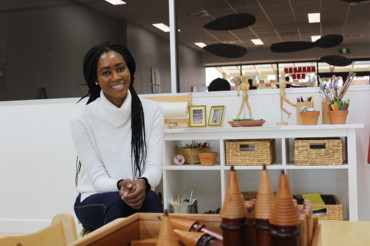Australian Religion, Culture and Laws
Knowing and understanding religion, culture and laws in Australia will help you to adjust to life in the Australian community.
Australia is a tolerant and diverse society with people from many different cultures and ethnic backgrounds. Australians come from all corners of the world. Nearly 30% of the Australian population was born overseas. Although English is the national language, there are around 300 languages spoken in Australia. Australians also practice a wide variety of religions. By law, everyone in Australia is free to express and maintain their cultural and religious traditions.
Australian lifestyle
There is no such thing as a typical Australian lifestyle. Some Australians choose a laid-back life in the country, while others prefer to live in busy cosmopolitan areas. Regardless of where they choose to stay, Australians enjoy a high quality of life.
Visit the Department of Home Affairs' website to download their Life in Australia book.
Australian values
The Australian Government encourages new residents to learn as much as they can about their new country, including Australia's heritage, language, customs, values and way of life.
Australian values include:
- Respect for the freedom and dignity of the individual
- Equality of men and women
- Freedom of religion
- Commitment to the rule of law
- Parliamentary democracy
- A spirit of egalitarianism that embraces mutual respect, tolerance, fair play, compassion for those in need and pursuit of the public good
- Equality of opportunity for individuals, regardless of their race, religion or ethnic background.
Visit the Department of Home Affairs' website to learn more about Australian values.
Religion in Australia
There is no official religion in Australia. Due to religious freedom, it is illegal to discriminate against any individual or group on the basis of their religious beliefs.
Here are the top seven religions practiced in Australia, taken from the Australian Bureau of Statistics (ABS) 2016 Census data:
- No religion – 30.1%
- Catholic – 22.6%
- Anglican – 13.3%
- Uniting Church – 3.7%
- Christian, (Not further defined) – 2.6%
- Islam – 2.6%
- Buddhism – 2.4%
Visit the ABS website for further data on Religion in Australia.
Australian Culture
Australians are generally friendly and informal in their speech. Australians often address each other by their given (first) name, but often use titles and family names (surname) until properly introduced.
In Australia, men, women and non-binary people are regarded equally; socialising and mixing freely. They compete for jobs on an equal basis and in many instances, share accommodation and contribute equally to expenses, cooking and cleaning.
Some cultures have difficulties adjusting to the new environment and may not be used to such diversity at first. But if you are open and respectful towards other people, ideas and traditions you will fit in well and be successful in your new life in Australia.
Staff in the CIT International Services Unit can assist you in adjusting to life in Australia.
Laws and social customs
Summary of information taken from the Department of Home Affairs' Life in Australia book:
Community behaviour in Australia is governed by a combination of formal laws and informal social customs. All people in Australia must obey the nation’s laws or face the possibility of criminal and civil prosecution.
Australian laws are made by the Australian Commonwealth, state and territory parliaments. Australia’s national police force is called the Australian Federal Police (AFP). Police officers can arrest people and give evidence in court, but the final decision on whether or not people are guilty of crimes is decided by the courts.
Police and the community have good relations in Australia. You can report crimes and seek assistance from the police.
For more information visit the Department of Home Affairs' website to download their Life in Australia book.
Family Safety Pack
The Australian Government has developed a Family Safety Pack for men and women coming to Australia. It includes information on Australia’s laws regarding domestic and family violence, sexual assault and forced marriage, and a woman's right to be safe.
Visit the Department of Social Services website to download the Family Safety Pack.
For more information on Religion, Culture and Laws in Australia, visit the Department of Home Affairs website at www.homeaffairs.gov.au

 Change language
Change language 简体中文
简体中文 ภาษาไทย
ภาษาไทย الدول العربية
الدول العربية Việt Ngữ
Việt Ngữ Español
Español Bahasa Indonesia
Bahasa Indonesia



